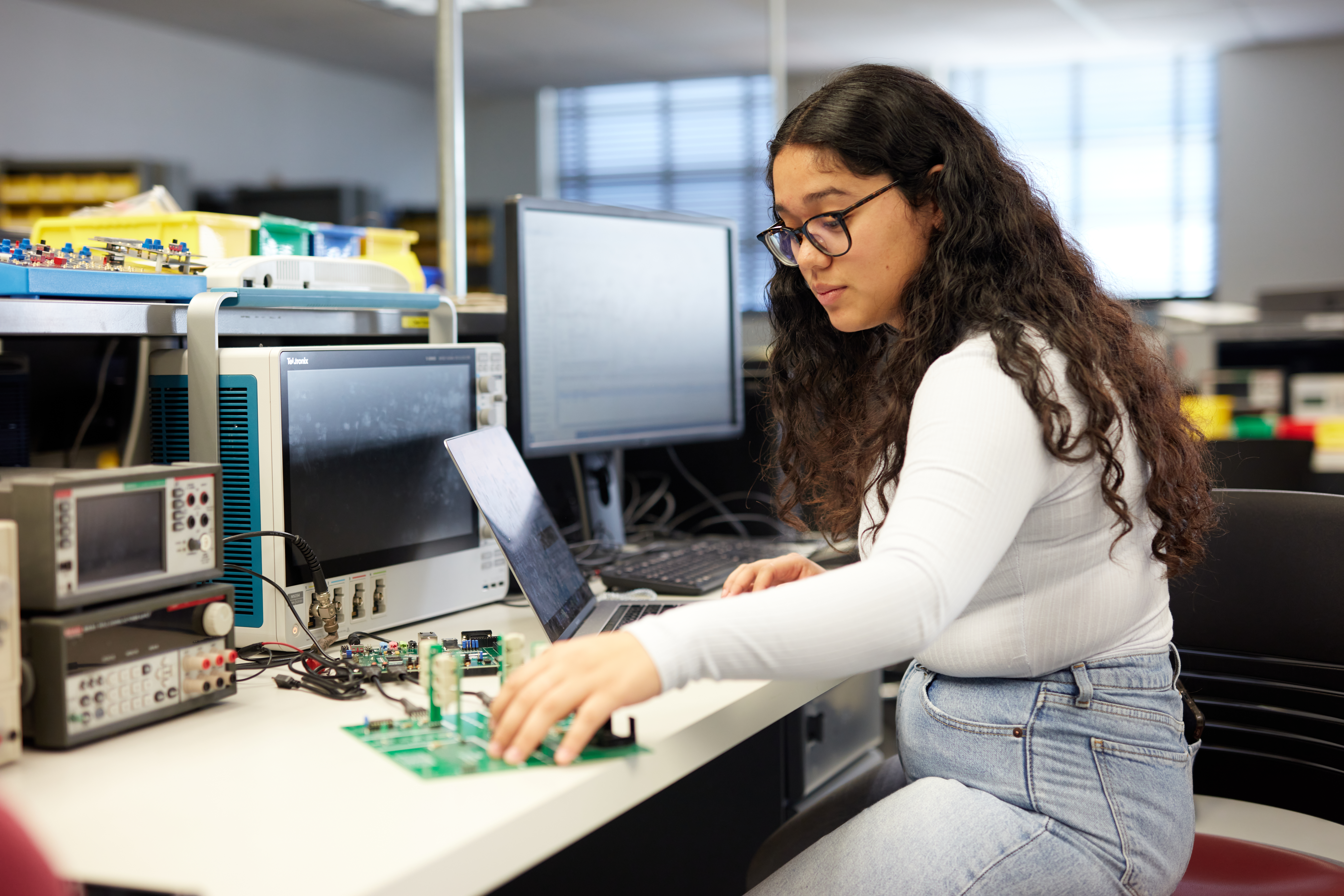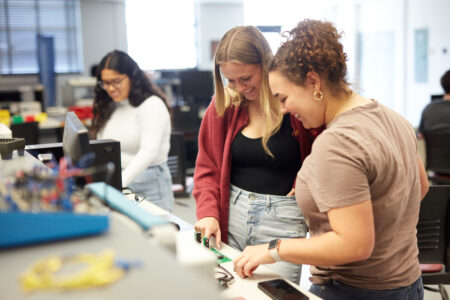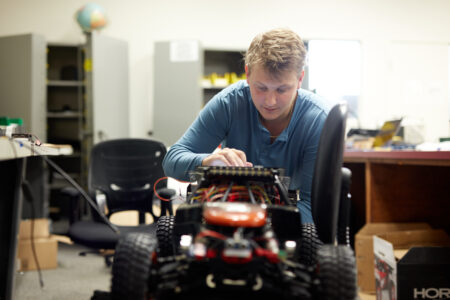
Loyola Marymount University Frank R. Seaver College of Science and Engineering has an eye on the future. By pinpointing areas of current and future importance, students studying science, technology, engineering, and mathematics are shaping the way we will live through the innovative research and mastery of the fundamentals offered in the college’s robust curriculum.
This fall, Seaver College is launching an undergraduate major and a master’s degree in Computer Engineering to meet the growing needs in the STEM fields for highly qualified professionals with technical skill sets in this area.
Gustavo Vejarano, associate professor in the Electrical and Computer Engineering Department, explained that although the degrees are new, some of the required courses have been offered in the past. Reflecting student enthusiasm to study computer engineering, the degree programs have risen to meet the demand.

“This interest isn’t just on LMU’s campus — there is a global interest in this work,” Vejarano says. “This creates such an opportunity for workforce development.”
Jie Xu, professor and chair of the Electrical and Computer Engineering Department, emphasized that both the B.S. and M.S.E. degree paths will prepare students for positions in industry. He said the program will “help students transition more smoothly” out of academic life through a holistic education in the field of computer engineering.
Vejarano cited a recent shortage in automobiles, caused in part by supply chain disruption, but also the industry’s inability to find enough skilled experts to manufacture essential hardware. The hardware in this case were semiconductor chips that run the car’s many embedded systems.
“Embedded systems are dependent upon those chips,” Vejarano says. “These are computing systems that are small in physical size and are present in many everyday devices — like robots that vacuum.”

He emphasizes that understanding the hardware goes hand in hand with building the software. Both skills are sharpened in computer engineering, which is a cross-
disciplinary effort at Seaver College.
“This is a great opportunity for interdisciplinary work,” Xu said. “The program is well rounded and versatile. It has a wide spectrum of applications, so there are many opportunities for collaboration. We cover computer science through software development but also electrical engineering through building hardware. ”
The curriculum combines classical lecture formats where students learn theory, with lab components that put theory into action. Vejarano said the program also trains students to consider the ethical implications of their work.
“Upon graduation, many of our students work in fields such as cybersecurity, AI, and robotics where they can make a positive impact in these areas,” Vejarano said. “They are positioned to play an active role in the betterment of society.”



